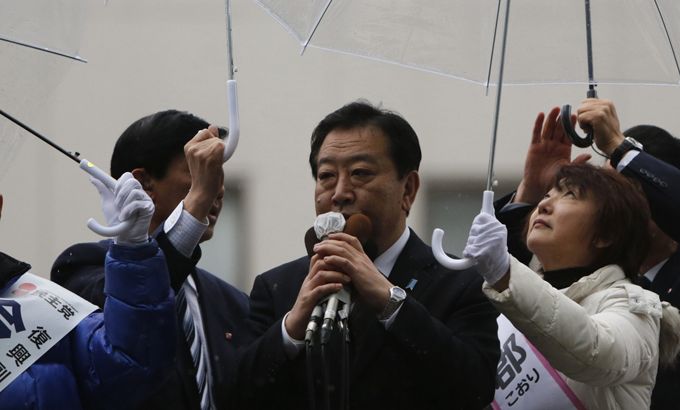
Who will save Japan?
We look at the political struggles of an economic giant facing an uncertain future as elections draw near.
Official election campaigning has started in Japan, with political leaders laying out their visions for the future.
But the country is standing at something of a crossroads and the direction it takes now could determine whether it remains one of the world’s leading nations or continues the slide it has experienced over recent years.
Teetering on the brink of recession and divided over nuclear energy, the country has seen six prime ministers bow out in as many years. So, can a seventh really be expected to revitalise it?
Japan’s economy is flagging, there is massive public debt and an ageing population.
The country’s gross domestic product (GDP) – which measures the value of goods and services produced – indicates that it is the world’s third-largest economy, behind the US and China.
|
“I always say this when I describe Japanese politics but I really do think it’s like reading Shakespeare – you don’t know when to cry or when to laugh. There is no strong, top-down leadership that could be expected in any of the leaders because it’s fragmented.“ -Seijiro Takeshita, from Mizuho International |
But Japan’s growth rate hit an all-time low of minus 3.9 per cent in June of 2009. And the latest figures show a fall of almost one per cent in the last quarter. Another fall forecast at minus point four per cent would tip Japan into its third recession since 2008.
Japan owes more than twice as much as it is worth, with little chance of paying it back.
The country is also grappling with an energy policy which was thrown into doubt after the disaster at the Fukushima nuclear plant and it is still embroiled in territorial disputes with China and South Korea.
And the country’s troubles do not end there – observers are predicting that the polls could lead to a weak coalition government, with no clear view of how that might be made up.
And who would want the job of Japanese prime minister?
It has not been kind to anyone who has filled the post in recent years, and would certainly rank as one of the more daunting tasks in world politics:
- After five pretty strong years under Junichiro Koizumi, Shinzo Abe succeeded him upon being elected by the Liberal Democratic Party (LDP). He only lasted a year because of poor health, although poor approval ratings were also a factor.
- Yasuo Fukuda stepped up as LDP leader, but was gone after a year because of a deadlock between his party and the Upper House, which brought Taro Aso to power.
- He too only lasted a year – this time because the LDP was hammered in the 2009 general election and lost power for the first time in 54 years to the Democratic Party of Japan (DPJ).
- Not that they fared much better. The DPJ leader, Yukio Hatoyama, broke his promise to close the US military base on the island of Okinawa, and resigned over it just nine months into the job.
- His successor Naoto Kan was not doing too badly, but he had to deal with the fallout from the 2011 earthquake, tsunami and nuclear disaster. He tried to resign a year into the job, survived a no-confidence vote, but eventually stepped down after 15 months.
- Which brings us to the incumbent, Yoshihiko Noda, who at this stage has lasted longer than any of his five predecessors.
So, who will save Japan?
To answer this, Inside Story, with presenter Kamahl Santamaria, is joined by guests: Michael Penn, the president of the independent Shingetsu News Agency; Seijiro Takeshita, the director of Mizuho International, the investment banking arm of Japan’s Mizuho Financial Group; and Gerhard Fasol, the CEO of Eurotechnology Japan.